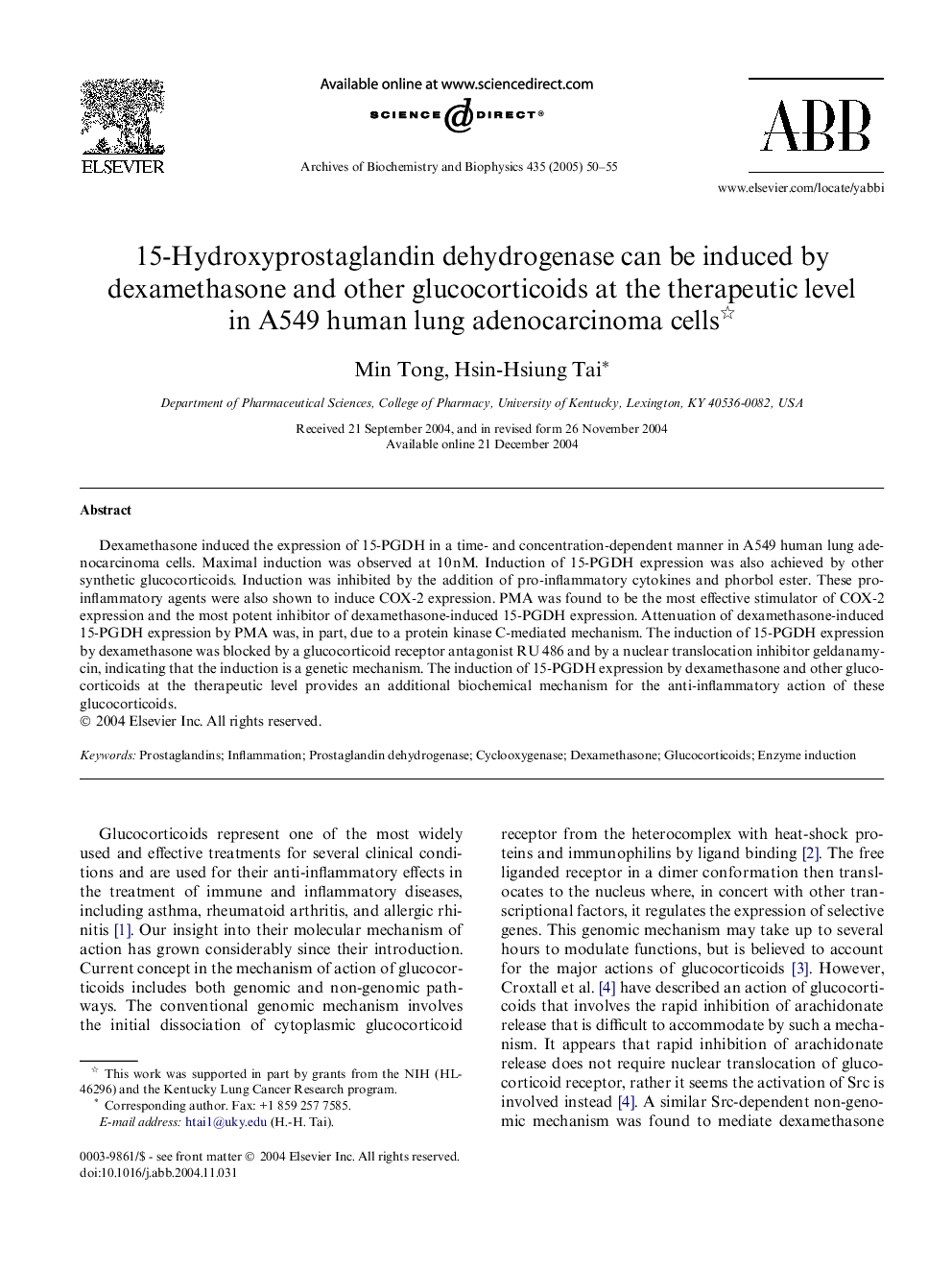| Article ID | Journal | Published Year | Pages | File Type |
|---|---|---|---|---|
| 9882306 | Archives of Biochemistry and Biophysics | 2005 | 6 Pages |
Abstract
Dexamethasone induced the expression of 15-PGDH in a time- and concentration-dependent manner in A549 human lung adenocarcinoma cells. Maximal induction was observed at 10Â nM. Induction of 15-PGDH expression was also achieved by other synthetic glucocorticoids. Induction was inhibited by the addition of pro-inflammatory cytokines and phorbol ester. These pro-inflammatory agents were also shown to induce COX-2 expression. PMA was found to be the most effective stimulator of COX-2 expression and the most potent inhibitor of dexamethasone-induced 15-PGDH expression. Attenuation of dexamethasone-induced 15-PGDH expression by PMA was, in part, due to a protein kinase C-mediated mechanism. The induction of 15-PGDH expression by dexamethasone was blocked by a glucocorticoid receptor antagonist RU 486 and by a nuclear translocation inhibitor geldanamycin, indicating that the induction is a genetic mechanism. The induction of 15-PGDH expression by dexamethasone and other glucocorticoids at the therapeutic level provides an additional biochemical mechanism for the anti-inflammatory action of these glucocorticoids.
Keywords
Related Topics
Life Sciences
Biochemistry, Genetics and Molecular Biology
Biochemistry
Authors
Min Tong, Hsin-Hsiung Tai,
